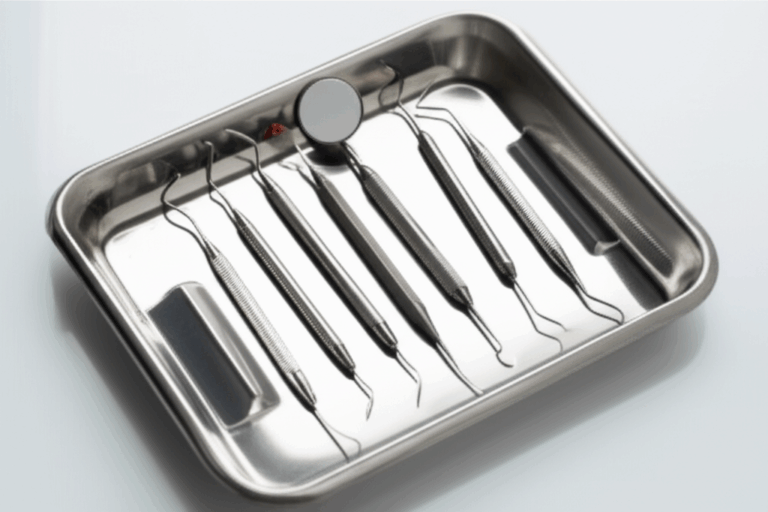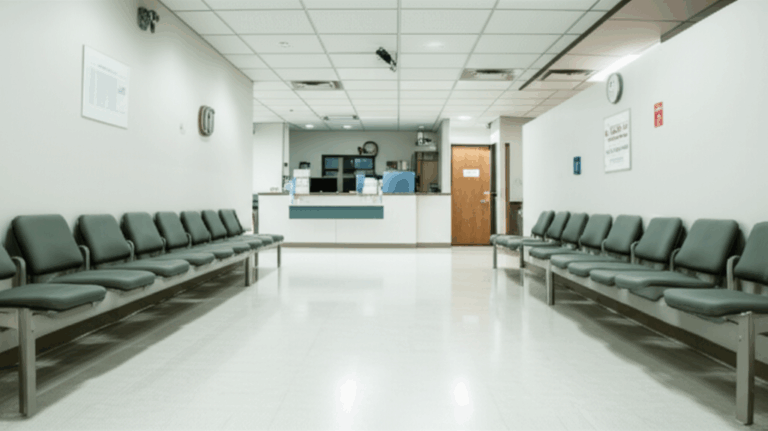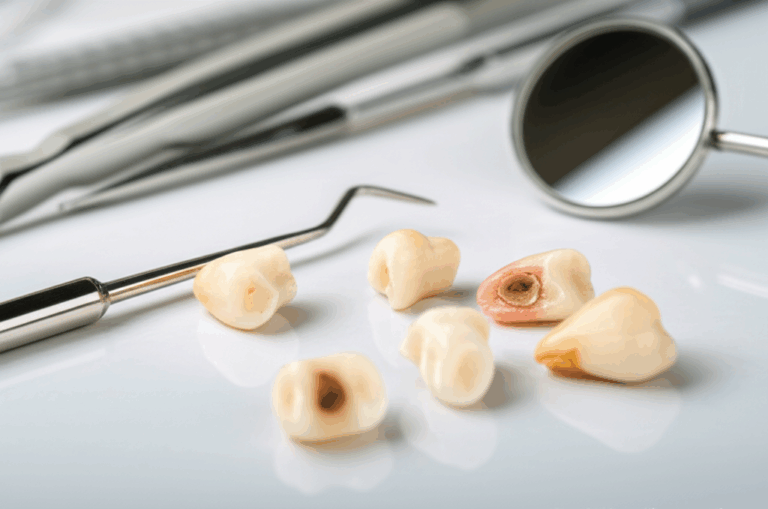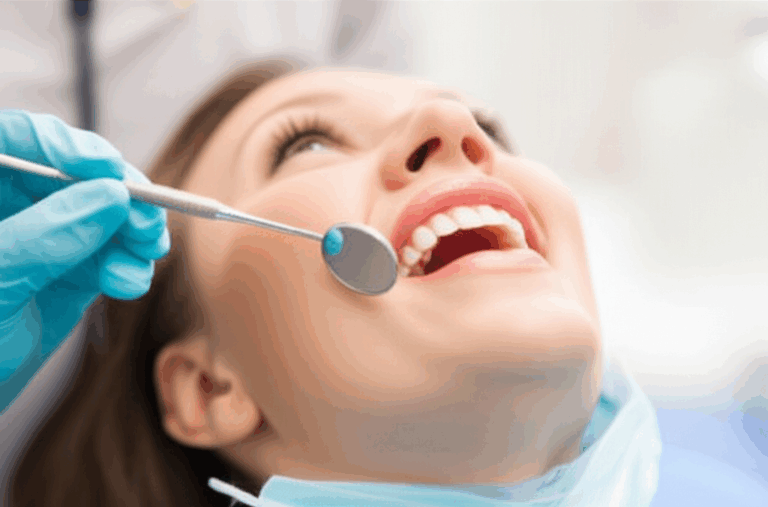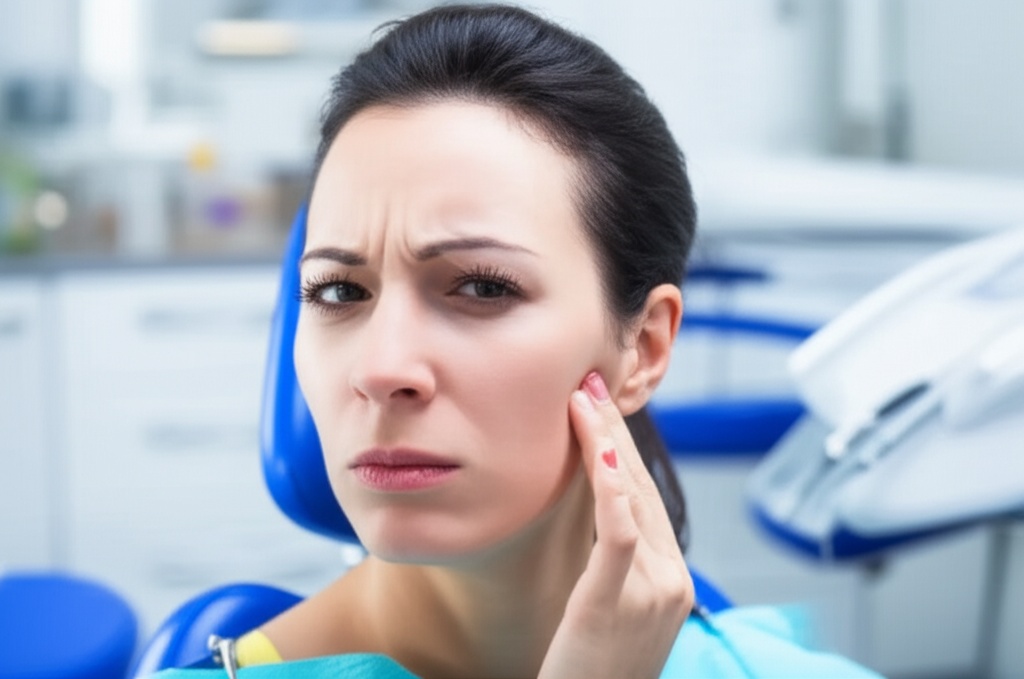
Why Does My Jaw Hurt After the Dentist? Understanding Causes, Relief, and When to Seek Help
That strange, sore feeling in your jaw after going to the dentist can catch you by surprise. Maybe it’s hard to open your mouth as wide as you usually do, or you notice a dull ache near your ear after something like a root canal or cleaning. If you’re wondering, “Why does my jaw hurt after the dentist?” you’re not alone. Let’s talk about what causes this soreness, how you can feel better, and when it’s time to call your dentist for extra help.
In This Article
- Is Jaw Pain After a Dental Visit Normal?
- Common Causes of Jaw Pain After Dental Procedures
- Symptoms Associated with Post-Dental Jaw Pain
- Effective Strategies for Jaw Pain Relief at Home
- When to Contact Your Dentist or a Specialist
- Preventing Jaw Pain During Future Dental Visits
- Conclusion: Prioritizing Your Post-Dental Comfort
Is Jaw Pain After a Dental Visit Normal?
If you leave the dentist’s chair and feel your jaw is stiff, sore, or hurts a bit, don’t worry—this is normal and usually goes away quickly. Dental treatments often mean you have to keep your mouth open for a long time, and some treatments are harder on your jaw than others.
Most common reasons your jaw might get sore after dental work:
- Using your jaw muscles a lot from keeping your mouth open
- A bit of swelling where shots or dental tools were used
- A small change in your bite after getting fillings or crowns
Most of the time, this hurting goes away in a few days and isn’t a big problem. But if the pain gets worse, stays more than a week, or you have swelling, fever, or can’t open your mouth, you should check with your dentist.
In short: Yes, it’s normal for your jaw to be sore after seeing the dentist, but really bad or long-lasting pain is not.
Common Causes of Jaw Pain After Dental Procedures
1. Keeping Your Mouth Open for a Long Time
This is the main reason most people get jaw pain after the dentist. Lots of dental treatments—like root canals, pulling wisdom teeth, or long cleanings—make you keep your mouth open wide for a while. Just like holding a stretch for too long, your jaw muscles can get tired.
- Tired muscles: The jaw muscles (like your masseter and temporalis) work hard and get sore.
- Sore joint: The main jaw joint (TMJ) can get swollen or start aching.
- Stretched ligaments: The parts that hold your jaw joint together can get a bit stretched.
Examples:
- Root canals: Your mouth has to stay open for a long time.
- Wisdom tooth removal: Your jaw is open wider than usual.
- Fillings or crowns: Sometimes take a while, so your mouth is open for a longer time.
2. TMJ Problems or Flare-Ups
If you already have problems with your jaw joint (TMJ), you’re more likely to get jaw pain after seeing the dentist. But even if you’ve never had TMJ troubles, dental visits can sometimes bother the jaw joint for a little while.
- Old TMJ issues: Dental work can wake them up again.
- Weird position in the chair: Sometimes your head or jaw is at an odd angle.
- Pressure from tools: Too much pressure can make the joint ache.
- Jaw popping out of place: It’s rare, but sometimes the jaw can slip a little during long dental visits.
3. Jaw Muscle Spasm or Tiredness (Trismus)
If your jaw feels tight or hard to open after the dentist, that’s called trismus—really, it just means your muscles are kind of cramping.
- Your jaw protects itself: Muscles tighten up to protect you.
- Hard to open your mouth: Sometimes you can’t open more than two fingers wide.
- Numbing shot issues: Sometimes the anesthesia shot can make things sore or tight around where you’re numb.
4. Soreness Where the Anesthetic Was Given
That numbing shot the dentist gave you can make your jaw sore where the shot went in. Sometimes there’s a tiny bruise or muscle stiffness, but this is usually mild.
5. Swelling and Inflammation
Any dental work that bothers your gums, tooth roots, or bone can cause some swelling and soreness. This is a normal part of healing, but it still makes your jaw ache.
- Getting a tooth pulled
- Deep cleaning of your teeth
- Gum surgery
6. Bite Feels Different
If you got a new filling or crown, your bite might feel strange at first. Even small changes in how your teeth fit together can put extra pressure on your jaw joint or muscles, making them sore.
7. Stress and Anxiety
If you feel worried before or during dental work, you might squeeze your jaw muscles without knowing it, which makes them tired and achy.
- Teeth grinding: Stress can make you grind your teeth more.
- Jaw clenching: Feeling nervous makes you tighten the jaw muscles without noticing.
8. Some Procedures Are Tougher on Your Jaw
Certain dental treatments are more likely to cause jaw pain:
- Wisdom tooth removal: These teeth are buried deep and the process is tough on your jaw.
- Root canals: Take time and keep your mouth open.
- Deep cleaning: Takes a while and puts pressure on your jaw.
- Dental implants: Need surgery and take time to heal.
- Fillings or crowns: Can take time and make your jaw tired.
Symptoms Associated with Post-Dental Jaw Pain
How can you tell if your jaw pain is normal after dental work or if you need to call your dentist? Here’s what you might notice after a dental appointment:
- Aching or throbbing jaw pain
- Hard time opening your mouth all the way (trismus)
- Clicking or popping in the jaw
- Pain near your ear, temple, or neck
- Jaw is sore when you touch it
- New headache
- Chewing or talking hurts
- Swelling in your jaw or face
Keep track: If these problems are gentle and go away in a few days, it’s usually fine. But if you have really bad pain, big swelling, fever, or can’t open your mouth, get in touch with your dentist.
Effective Strategies for Jaw Pain Relief at Home
No one likes sitting around with a sore jaw after seeing the dentist, so here’s how to help yourself feel better at home:
1. Give Your Jaw a Rest
Think of it like sore muscles after exercise—rest helps you recover.
- Don’t talk or yawn a lot right away.
- Chew on the other side or eat soft foods.
2. Eat Soft Foods
Pick foods that are easy for your jaw.
- Try yogurt, mashed potatoes, oatmeal, smoothies, soup, scrambled eggs.
- Stay away from tough, crunchy foods for a day or two.
3. Warm & Cold Packs
Heat and cold can both help your sore jaw.
- Warm pack: Use a damp, warm towel on your jaw for 10–15 minutes to relax muscles.
- Cold pack: A bag of ice or frozen peas wrapped in a towel can ease swelling and pain for 10 minutes at a time.
4. Over-the-Counter Pain Medicine
- Ibuprofen or naproxen helps with pain and swelling.
- Acetaminophen helps with pain.
- Follow the directions and ask a doctor if you’re not sure.
5. Gentle Jaw Movements
Stretching your jaw a little can make it feel less stiff.
- Slowly open and close your mouth a few times.
- Move your jaw side to side gently.
- Avoid anything too forceful.
6. Massage
Use your fingers and gently rub the sore jaw joint (in front of your ear) and the main cheek muscle. Go in small circles—this can help it relax.
7. Relax and Lower Stress
Taking care of stress can make your jaw feel better.
- Take deep breaths or listen to relaxing music.
- Try a guided meditation or just rest quietly.
8. Drink Lots of Water
Staying hydrated helps your muscles and jaw joint heal.
9. Listen to Your Dentist’s Advice
Your dentist might give you special medicine or tell you to do something after your treatment. Follow their tips!
When to Contact Your Dentist or a Specialist
Not all jaw pain is the same. Here’s when you should call your dentist:
- Pain is really bad or isn’t getting better
- Pain lasts more than a week
- You can’t open your mouth much at all
- Jaw clicks, locks, or feels popped out
- Signs of infection: fever, pus, big facial swelling, bad taste in your mouth
- Numbness or tingling that won’t go away
- Bad headaches or ear pain after treatment
- Your bite feels weird after getting dental work
If you’re not sure, don’t tough it out—give your dental office a call.
Preventing Jaw Pain During Future Dental Visits
You can try a few simple things to keep your jaw from hurting next time you visit the dentist:
- Tell your dentist if your jaw gets sore easily or you’ve had TMJ problems
- Ask for breaks during long dental treatments
- See if your dentist can use a mouth rest or prop so you don’t have to hold your mouth open all by yourself
- Practice relaxing before your appointment, like deep breathing
- Talk to your dentist about taking pain medicine ahead of time for big treatments
- Let them know right away if you start to feel pain
- Go for regular checkups to help avoid big dental problems that take longer to fix
Tip: Some clinics, like a good digital dental lab or crown and bridge lab, use special tools and comfy supports that can make visits more comfortable.
Conclusion: Prioritizing Your Post-Dental Comfort
Here’s what you learned about jaw pain after going to the dentist:
- Jaw pain after the dentist is very common and usually doesn’t last long. It’s mostly from keeping your mouth open, muscle tiredness, a TMJ problem, or just being nervous.
- Easy home remedies can help—rest your jaw, eat soft food, take pain medicine, try heat or cold, and relax.
- What’s not normal? Really bad pain, pain that doesn’t go away, swelling, not being able to open your mouth, or signs of infection. If any of these happen, call your dentist.
- Talking to your dentist helps, especially if you already have jaw pain or TMJ issues.
- Taking care of yourself before and after a dental visit can help your jaw stay comfortable.
Your Healthy Takeaway
- It’s normal for your jaw to be sore after dental work.
- Most pain will go away with time and a bit of self-care.
- Knowing why your jaw hurts makes it easier to heal and feel better about seeing the dentist next time.
- For really bad or long-lasting pain, always get help.
- Good oral care and regular checkups help avoid bigger problems and keep your jaw and teeth healthy.
Remember: Your smile needs care—and your jaw does, too! If you’re interested in new dental materials or great restorative treatment, check out how a china dental lab helps dentists get great results. Whether you’re going for a simple cleaning or a bigger procedure, knowing what to expect helps make your dental visits much easier.
Take charge: Ask questions, talk about any jaw or dental worries, and don’t be afraid to mention your pain at your next appointment. When you look after yourself, your jaw (and your smile) will thank you.
Take care, rest if you need to, and always reach out if your jaw pain feels out of the ordinary. Your jaw will be glad you did!

